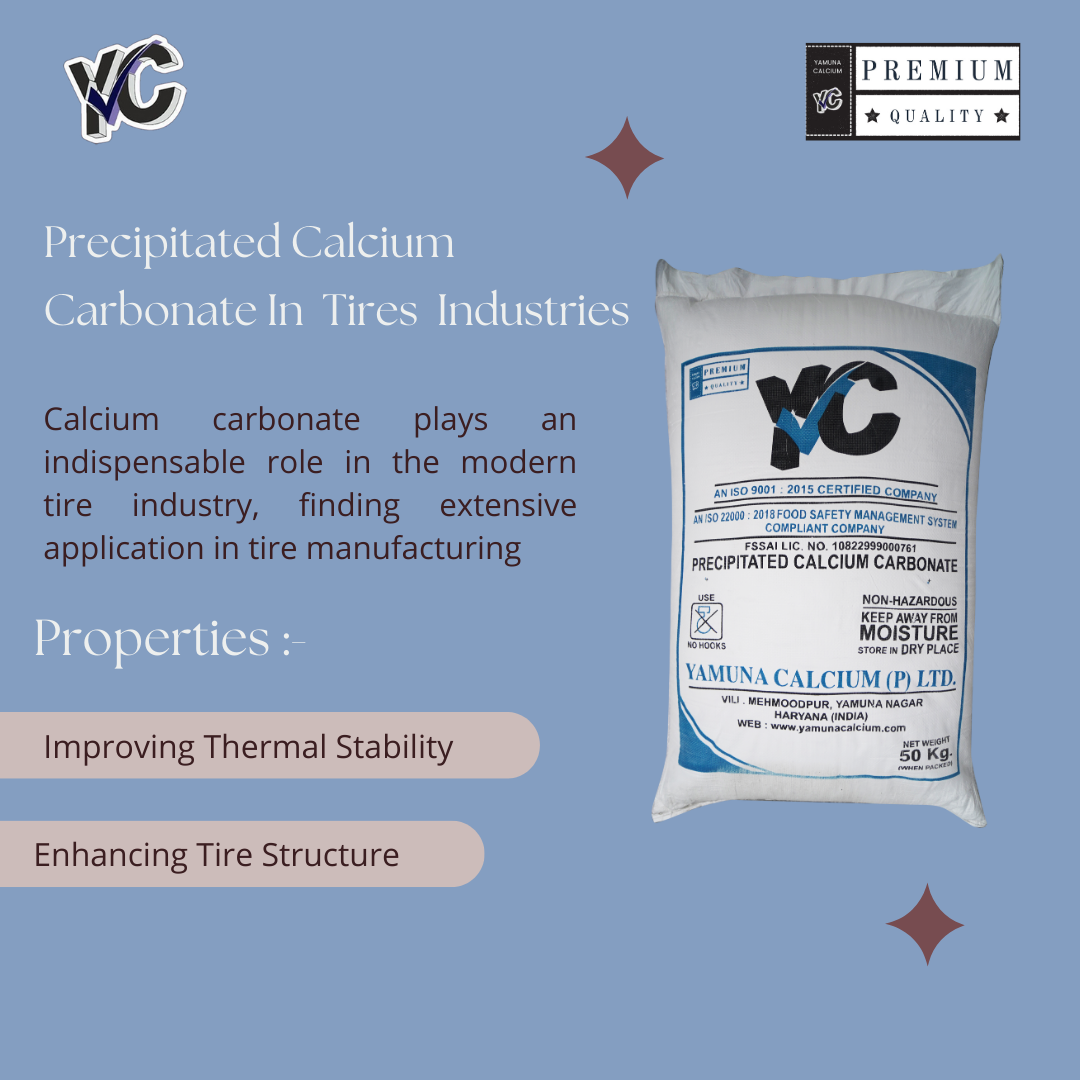1) Enhancing Tire Structure: Calcium carbonate is widely employed as filler in tires to reinforce their structural strength and durability. By blending calcium carbonate powder into tire rubber, wear resistance is heightened, enabling tires to better withstand road friction and abrasion, consequently extending their operational lifespan.
2) Adjusting Tire Hardness: Tire hardness is paramount for vehicle maneuverability and comfort. Calcium carbonate serves as filler during tire production to fine-tune tire hardness. By appropriately adjusting the content of calcium carbonate, tires of varying hardness can be crafted to cater to diverse driving requirements.

3) Improving Thermal Stability: Extended high-speed travel or prolonged use may soften or deform tires due to increased temperatures. As a thermal stabilizer, calcium carbonate enhances tire thermal stability, preventing tire softening or deformation at elevated temperatures.
4) Reducing Production Costs: Calcium carbonate is relatively affordable and abundant. Its utilization in tire manufacturing effectively curbs production costs. Simultaneously, the use of calcium carbonate diminishes the need for other costly fillers, enhancing the economic efficiency of tire production.
5) Lightweight Design: Calcium carbonate is lightweight filler capable of replacing portions of rubber materials, thus lowering the overall tire weight. This contributes to improved fuel efficiency and vehicle handling while minimizing environmental impact.
6) Enhancing Balance and Comfort: Well-judged addition of calcium carbonate can improve tire balance and comfort, mitigating vibrations and unevenness during travel. This enhances the driving experience and passenger comfort.
7) Environmental Benefits: Calcium carbonate is a natural mineral with relatively low environmental impact. Its application in tire manufacturing helps curtail the demand for finite natural resources, concurrently lessening the environmental burden.
7) Improves Strength: PCC enhances the mechanical properties of rubber compounds, including tensile strength and durability, making tires more robust and longer-lasting.
7) Thermal Conductivity: PCC helps in better heat dissipation, which is crucial for maintaining tire performance under high-temperature conditions.
.png)
.png)





